One of the most common questions I get is:
“What are seed oils?”
So first off, here’s a list of the most common seed oils:
NOTE: Margarine is also made from seed oils, and to make it worse, they’re hydrogenated (trans-fat).
Avoid margarine. This includes Earth Balance and anything labeled “Plant Butter.” Plants don’t make butter.
They’re trying to trick you into eating margarine by making it sound natural and healthy. Don’t be fooled! It’s bad for your health and your cardiovascular system. Very toxic and inflammatory.
Why are seed oils bad for us?
Several reasons.
For one, they’re usually made from plants we don’t actually eat – OR that we don’t consume in anywhere near the quantities we’re getting in the oil.
Take canola for example. What is a canola? Well, it’s actually a marketing spin to make you think it’s something else. It stands for Canada Oil Low Acid, and there’s actually no such thing as a canola plant. In truth, it’s rape seed oil. We don’t eat rape seeds and just because some marketers convinced the world this cheap oil was “heart healthy” doesn’t mean we should. Marketing claims aren’t fact. Even marketing like the American Heart Association seal should be questioned. It’s on mostly processed and unhealthy products.
Hexane and chemical processing. The more processed, the further away from nature – that typically has a negative impact on our health. Not only are these oils heavily processed, they also use hexane (a toxic solvent) and other chemicals/solvents to make them.
Seed oils are typically rancid. Part of the processing removes the scent so we can’t smell that it’s rancid. Rancid oil is very toxic and should be strictly avoided.
You might notice some of the oils that made the list aren’t made from seeds. They’re still lumped into the “seed oils” group since they’re typically heated and chemically treated, processed with hexane, rancid, de-scented, etc.
Plus, how often do you eat rape seeds, cotton seeds, or a big bucket full of corn or soybeans (what it takes to extract a small amount)? That alone should tell us it’s not something we’re naturally adapted to.
So what oils SHOULD I use?
For high-heat, it’s best to cook with animal fats.
Primary animal fats are:
NOTE: Yes, these are high in saturated fat. We’ve been told saturated fat is bad for us or that it’ll “clog our arteries.” That’s actually not true. Saturated fats are part of a healthy animal-based diet.
For baking, dressings, and everything else use these oils:
How do I avoid FAKE oils?
Believe it or not, most of the “healthy” oils we find in stores are either fake or cut with seed oils. It’s not well regulated and the chain of custody during import makes it difficult to crack down on. But it’s ok, there’s hope! Knowledge is power, and if you know what to look for, you can avoid the fake oils.
Extra Virgin Olive Oil:
I prefer oil from Italy or Greece. I order mine directly from an olive mill in Greece (Isle of Crete) that I personally visited. But if you can’t visit the olive mill and verify for yourself, here are some tips:
Only buy Extra Virgin Olive Oil. Never “Virgin” or just “Olive Oil”, as these are extracted with heat and chemical solvents. Extra Virgin means it’s cold-pressed without any solvents or chemicals. Or at least it’s supposed to be (when it’s from a reputable source). So here’s how to further dig and avoid unhealthy fakes:
Only buy single origin oil. This means that only one country is listed as the source on the label. If it says “Product of Italy” or Product of Greece” and not 2 or 3 countries, that’s single-origin.
Here are some oils I found at Whole Foods and Traders Joes. Notice how these are not single-origin – so they likely contain seed oils as the chain of custody isn’t tightly controlled:
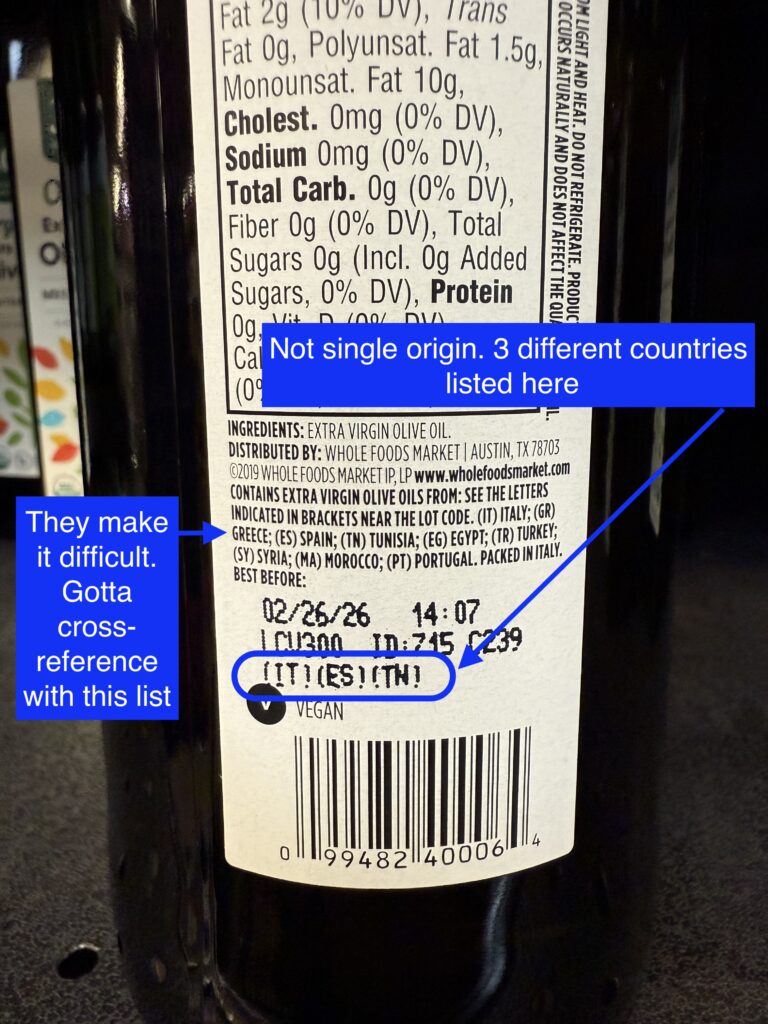
Another bad Olive Oil:
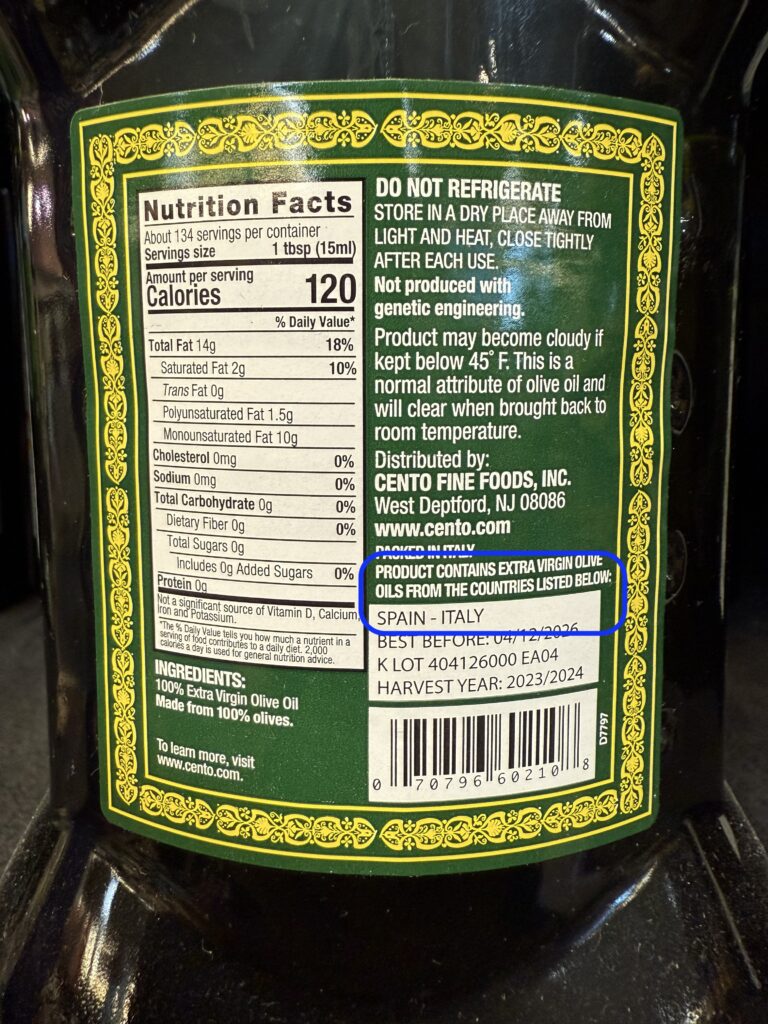
And here’s one from Trader Joe’s where they’re trying to trick you! Notice it says “Packed in Italy” but the sources are from elsewhere. Very sneaky and dishonest!
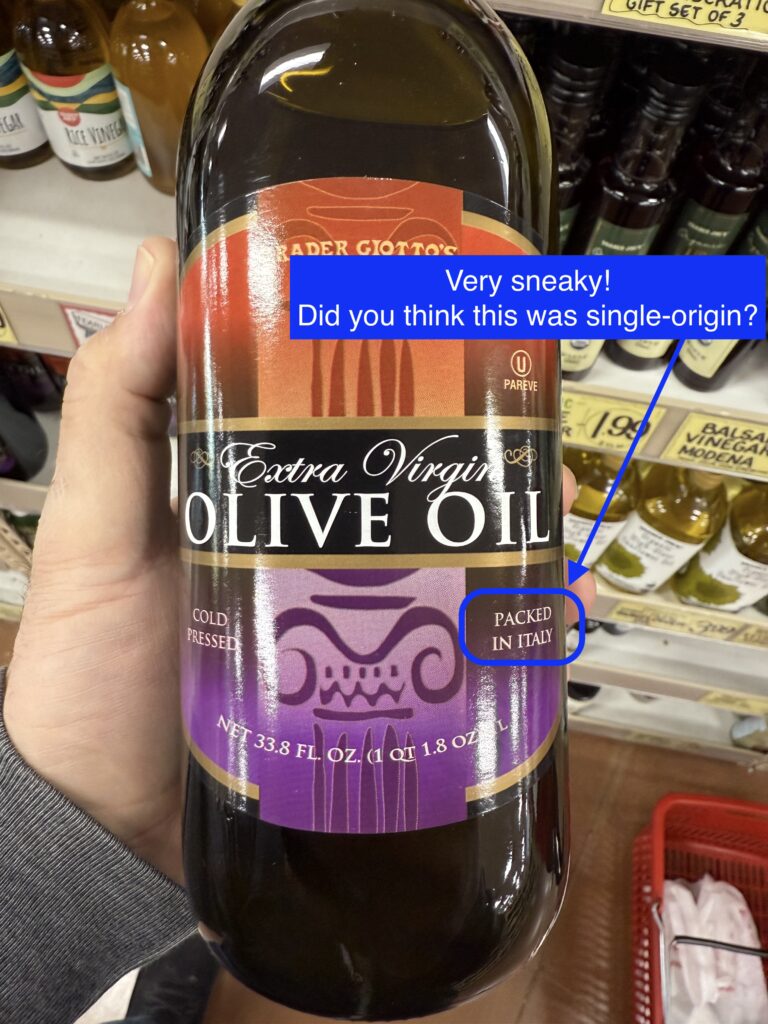
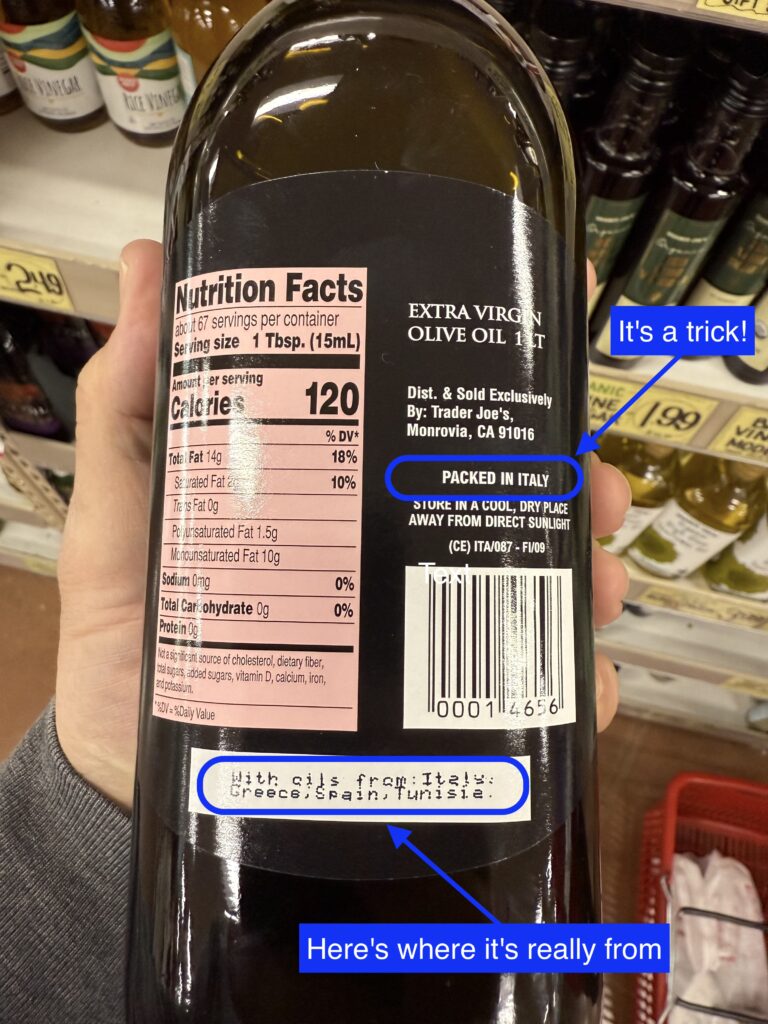
And here’s what a legit single-origin olive oil looks like. This is the back of a Lucini Premium Select Extra Virgin Olive Oil.
It’s single-origin (just Italy) and I would use it:
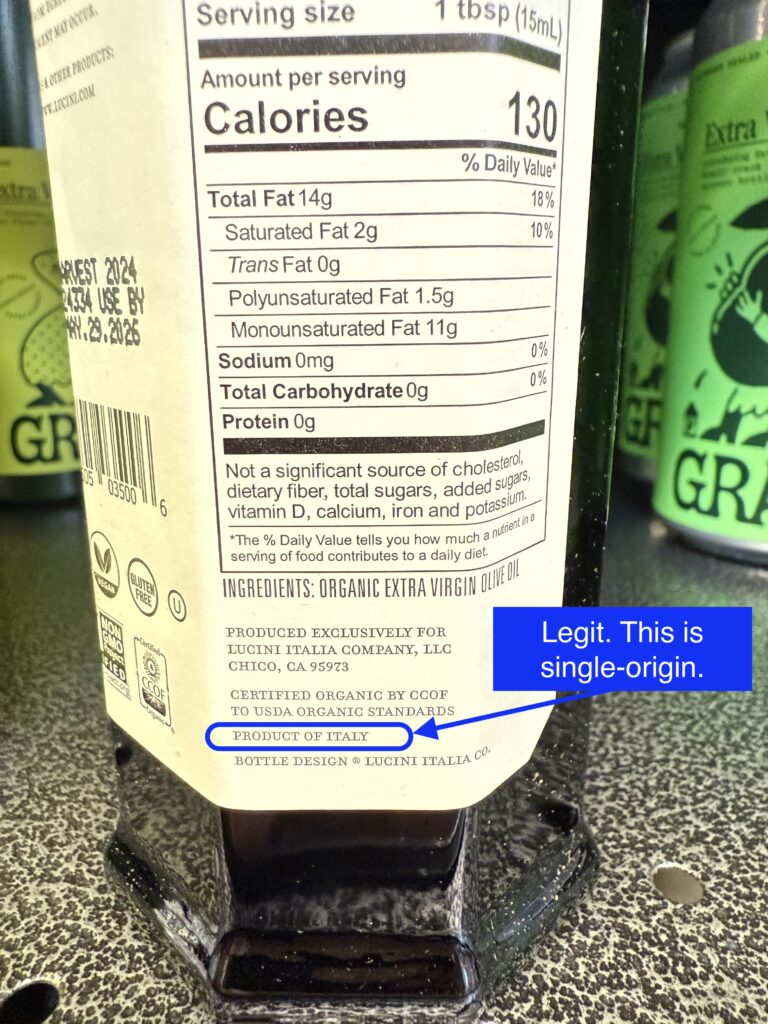
Only buy oil in Glass Bottles! Plastic leaches petrochemicals into the product which are hormone disruptors, they also contain microplastics. Heads up: metal containers are usually lined with plastic – avoid them as well.
Known-good brands:
Avocado Oil:
Even most Avocado oils are fake. Yes, MOST of them (82% according to this UC Davis study). But you can get real Avocado oil. Here’s how:
Look for a green color (not yellowish). Should smell grassy – like an avocado. Buy only known-good tested oils. These brands are known-good, real avocado oil:
Known-good brands:
Consumer Lab is also a great resource for finding tested brands.
Summary
I hope this helped answer the most common questions:
More questions? Keep them coming.
In good health,
-Ira

